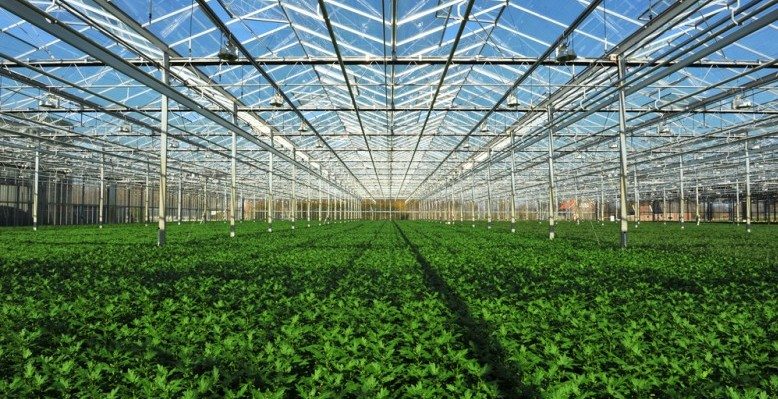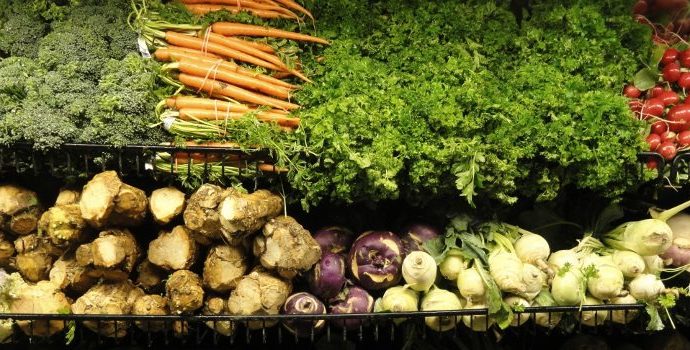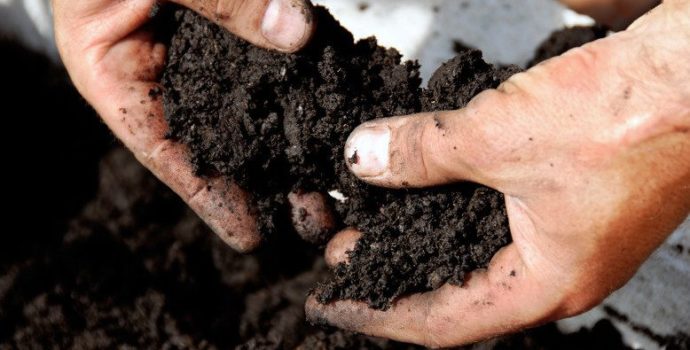Horticulture Council Report September 2024

Market Report
It has been a challenging growing season for growers. All plantings were significantly delayed which caused a knock of effect for subsequent harvest and plantings. Fluctuating temperatures and below average light levels throughout the summer have reduced yields on many crops, particularly those in the glasshouse sector. These adverse conditions are compounded by the fact that input costs have not abated and in the case of staffing have significantly increased with double digit inflation.
Field Vegetable Sector
In the field vegetable sector, most growers reported that they were at least four weeks behind schedule this spring. Gaps were evident in supermarket shelves in early summer. Subsequent plantings progressed but fluctuating temperatures meant some crops were slow to mature.
Protected crops
Reduced light intensity levels have caused the season to be delayed for the majority of protected crops. It is reported that delays of at least 3 weeks have been experienced so far. In normal years, the first tomato crops would be ready to pick around the middle of March, this was extended well into April this year.
Apples
The inclement wet weather conditions earlier this year caused damage to access roadways and pathways in orchards and significant costs will be incurred on this remedial work. Some root damage, due to wet weather, may also affect the crop yields later this season.
Amenity
Reduced light levels have impacted the amenity sector in terms of growth rates and markets. Wet weather has caused significantly subdued sales for the sector.
Mushrooms
The cost and availability of straw as a direct result from the weather conditions is having a huge impact on the mushroom industry. This extremely wet spring will likely impact the availability of straw this year and current stocks are at an all-time low.
Input Costs
Teagasc produced a detailed analysis of input cost inflation across the horticulture sub sectors earlier this year [1]. This years input is on top of double digit inflationary figures for the previous two years. As outlined in the Teagasc report, Brexit, Covid-19 and the Russian invasion of the Ukraine characterised the input increases from 2021 – 2023, the year input costs are focused around (climate change) weather events and staffing increases.
.
Three-year averaging of input costs gives a clearer picture of what the sector has endured in terms of costings. This is the third year that Teagasc have produced the input cost analysis. Since the first report of this type in 2021, combined horticultural inputs have risen by on average 40% which is detailed below. Although the market did respond to the input costs, in most cases it has been low figure double digit increases. Additional supports are necessary for the sector.
Staffing is a key input on all horticulture farms. In 2024, labour cost is the key driver of inflation and it outweighs reductions in other input categories including energy. Labour represents on average 40% of total input costs for most horticultural sectors. As an input, it has increased by between 12.5% and 24.3% depending on sector dependence on the General Employment Permits (GEP) and a combination of factors, which include the national minimum wage (NMW) increases. The below table from the Teagasc report highlights the increase in wages.
Food Regulator
IFA continues to engage with the office of the Food Regulator and further meetings with the CEO are arranged for the Autumn. The office of the new Agri-Food Regulator was launched in December. This new State body, tasked with regulating the food supply chain, An Rialálaí Agrabhia, will play a very important role in bringing fairness back into our food supply chain and level the playing pitch in negotiations between farmers, processors and retailers.
Activity since last National Council
- IFA continues to make a number of political engagements on the issue of work permits and soaring staff costs since the announcement in December. Representatives of the fruit and vegetable and mushroom committees met with Minister Neale Richmond, Minister Simon Coveney and Minister Peter Burke this year.
- An IFA potato and horticulture delegation met with Minster Darragh O’Brien in North Dublin on August 20th. Key asks in IFA’s Budget submission https://www.ifa.ie/wp-content/uploads/2024/07/IFA-PreBudget-Submission-2025-A4-Jul24-v10WEB.pdf were discussed.
- A number of potato/horticulture growers met with Minister Helen McEntee and Nina Carbury MEP on August 9th as part of a wider IFA delegation. Key asks in IFA’s Budget submission were discussed in detail.
- AN IFA potato and horticulture delegation met with Minister Jack Chambers on August 1st. Key asks in IFA Budget submission were discussed with particular focus on residential zoned land tax (RZLT).
- IFA attended a meeting of the Horticulture Industry Forum sub-group. This group have now met with all retailers as an initial engagement on the National Horticulture Strategy.
- IFA organic project team met with Bord Bia virtually in July first to discuss the ongoing works into market development in the sector.
- Representatives from the organic project team met with IFAC to discuss the potential for producer organisation in the sector.
- IFA/IHNSA representatives attended the GLAS trade show earlier this month.
- IFA continues to work with Bord Bia to deliver the ‘Life is Better with Fruit and Vegetables’ promotion. The promotion is 80% funded from the EU with the balance supported by growers. More info on https://fruitnveg.ie/
- IFA continued to liaise with all retails and packers on how the season is unfolding, the weather conditions, staffing costs and all other issues.
EU/COPA Developments
- IFA continues to engage with our COPA COGECA counterparts on all issues.
Upcoming Events / Issues
- The EU promotional campaign for Fruit and Veg is now underway. More information can be seen here https://fruitnveg.ie/. The promotion is 80% funded from the EU with the remaining contribution from growers.
An IFA organic project team meeting will take place on September 11th in the Irish Farm Centre
An IFA Fruit and Vegetable Committee meeting will take place on September 26th in the Irish Farm Centre
IFA organic section will be represented in the Organic Village at the Ploughing Championships this year.
[1] https://www.teagasc.ie/publications/2024/horticulture-crop-input-prices-2024.php


